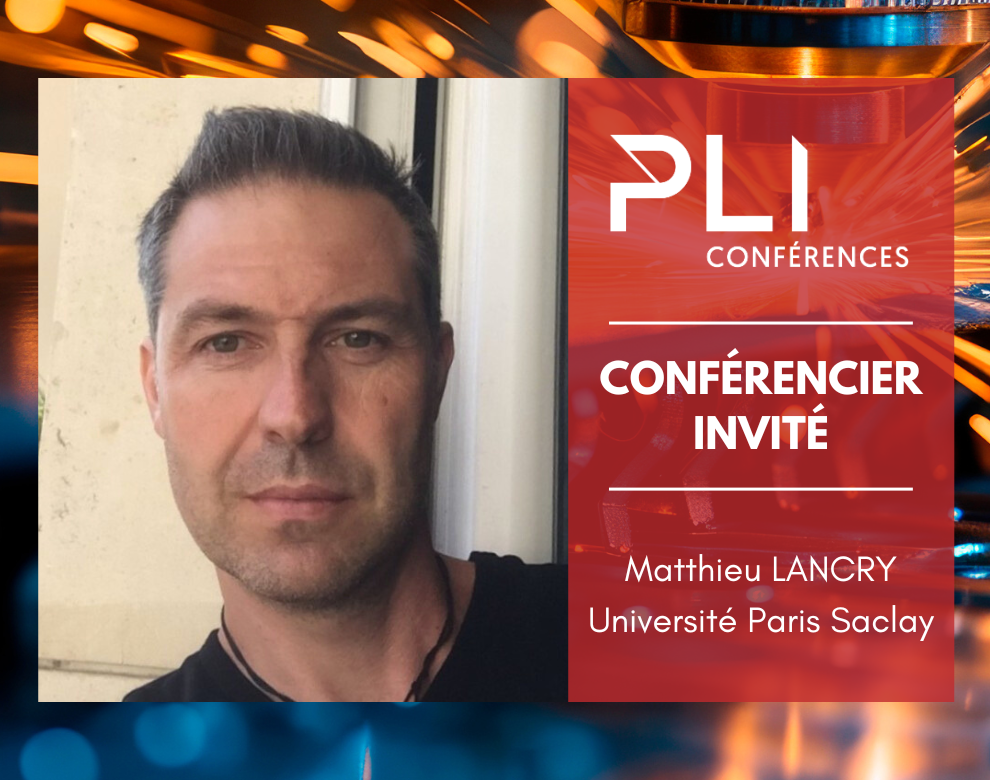

On September 24th and 25th, Strasbourg will host the PLI Conferences, a must-attend event dedicated to laser processes for industry.
Organized by CLP, IREPA LASER, ICUBE, IPG PHOTONICS, PRECITEC, and the PHOTONIC INSTITUTE, with the support of TRUMPF and OPTOPRIM, in partnership with PHOTONICS FRANCE.
Among the many experts who will be speaking, we had the honor of meeting Matthieu LANCRY from the University of Paris Saclay. In this interview, he shares his career path, his view of current and future trends in the sector, and the importance of collaboration between industrial and academic players.
Discover his responses:
Can you tell us about your professional background and key experiences in the field of lasers and industrial processes?
After completing a PhD on fiber optic components in collaboration with Alcatel, I worked on fiber manufacturing at Draka-Comteq before joining the University of Paris Saclay in 2006. I now lead a research group focused on materials for photonics.
How do laser processes revolutionize industry today, in your opinion?
Lasers are not just about emitting light; they are powerful tools that have transformed industries. From cutting-edge manufacturing processes to medical treatments and security, lasers offer unmatched precision (machining, welding, engraving), efficiency, and versatility. They have revolutionized communication technologies and are paving the way for scientific and technological breakthroughs in various fields, from aerospace to nuclear energy, and even in everyday life technologies such as entertainment, decoration, and diagnostics.
Why did you choose to participate in the PLI Conferences, and what are your goals as a speaker at this event?
This is a conference I've been thinking about for several years, but there are also many other photonics conferences internationally, particularly in the United States. One notable aspect of PLI is the strong industrial participation, which motivated me to attend this year to develop partnerships.
As an expert, what are, in your opinion, the main current and future trends in the industrial laser field?
Among the many current trends, industrial lasers are paving the way for scientific and technological breakthroughs such as quantum computers, material functionalization, and the development of optical sensors.
What role does the Laser and Processes Club play, in your opinion, in promoting and advancing laser technologies in industry?
For me, the Laser and Processes Club helps to raise the visibility of the French industrial fabric on a national level, creates collaboration opportunities between industrial partners, and links them to academic players, fostering public-private partnerships.
A big thank you to Matthieu LANCRY!